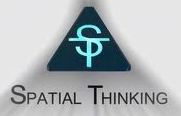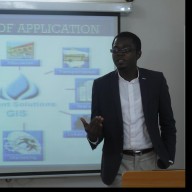
WorldPress Plugin for ArcGIS Online: Spatial-Blogging for all Bloggers
 WordPress, nicely in love with spatial-thinking, in light of this; it has introduced a new plugin called ArcGIS Online plugin powered by ESRI’s ArcGIS Online technology.
WordPress, nicely in love with spatial-thinking, in light of this; it has introduced a new plugin called ArcGIS Online plugin powered by ESRI’s ArcGIS Online technology.
This will enable all bloggers, website creators, media and news organisations integrate the ”where” clause into their posts and pages.
This has added the button called ”Add Map” next to ”Add Media”, it will provide all users of WordPress an easy way to embed web maps, more especially authoritative maps from arcgis online to their pages and posts.
The Add Map button will have the following interesting features:
- Searching for Maps
- Search millions of interactive web maps using one or more keywords.
- All public web maps registered with ArcGIS Online that have a name or contain tags matching your keywords will be returned.
- Search results will be displayed in a gridview showing the name and image of the map.
- Hovering over a map will provide additional details (owner, description, etc.) that will help to inform users on whether or not this map is showcasing the right content.
- A map details link will take you to the ArcGIS Online item details page where a variety of additional information about this map is available.
- Configuring Maps
- Once a map has been selected, the user is presented with a variety of settings that can be configured before the map is embedded.
- Size, Show Zoom Control, Show Scale Bar, Show Legend, Show Description, Show Location Search, Show Basemap Selector, Show “View Larger Map” Link
- Viewing Maps
- Embedded maps are fully interactive, which means that users can zoom in/out and identify features on the map.
- All visible data and capabilities exposed on each map layer are controlled within ArcGIS Online by the map creator.
- For layers with pop-ups enabled, users can click on features to see additional information in a pop-up dialog.
- Additional map controls exposed to the user (scale bar, legend, etc.) are determined on the WordPress side by the map settings.
- For users that want a more robust experience for interacting with the map, they can click the “view larger map” link which will open the web map up in the ArcGIS Online map viewer.
There are two versions of the plugin, the Free and Pro versions, the free version contains the features outlined above but the Pro version which is not free contains more professional functions.
Nice stuff, please guys! , the plugin is not immediately available, it is almost complete, watch out for it very soon.
For more information, a video from the developer below:
Source: geo-jobe.com






